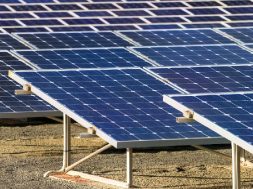
Now, a solar-based cold storage for farm produce
NEW DELHI: Engineers at the Indian Agricultural Research Institute (IARI) in New Delhi have developed a solar-powered on-farm storage structure that can increase the shelf-life of fruits and vegetables in regions where cold storage facilities are absent.
The four-cubic-metre storage space, designed by Pramod Kumar Sharma and others at IARI’s division of agricultural engineering, can retain the quality and freshness of fruits and vegetables for an additional period of up to five days, they reported in the journal Current Science on Monday.
Farmers can install them on their farms and need only four solar photovoltaic panels to run. To keep the costs down, they use an inverter that converts DC type power generated by solar cells into AC type and has a battery backup.
The low-cost air-cool chamber is more suitable for farmers living in villages where grid electricty hasn’t yet reached. There are about 94,000 villages in India that are without electricity. Of these, 25,000 villages are located in such remote areas that extension of existing electricity grid is not economically viable, they said. According to the scientists, up to a third of fruits and vegetables produced in the country are perished in post-harvest losses.
Temperature and relative humidity are said to be the two most important environmental factors influencing the quality and storage life of fresh produce.
The scientists said if the surrounding air temperature is brought down within four hours of harvesting, it can slow down the deterioration of the quality and freshness of the produce.
The structure is very similar to desert cooler used in hot and dry climes of North India but has an exhaust fan on the roof of the container. Four sides of the structure are covered with commercially available cellulose pads which are constantly fed with water using an underwater cooler pump.
The tests carried out by the scientists using the prototype showed that the structure could not only lower the temperature at which the produce are kept, but also increase the relative humidity, which is also known to help increase shelf-life of fresh fruits and vegetables.
Among its advantages are low-cost of manufacturing and negligible operating cost.














